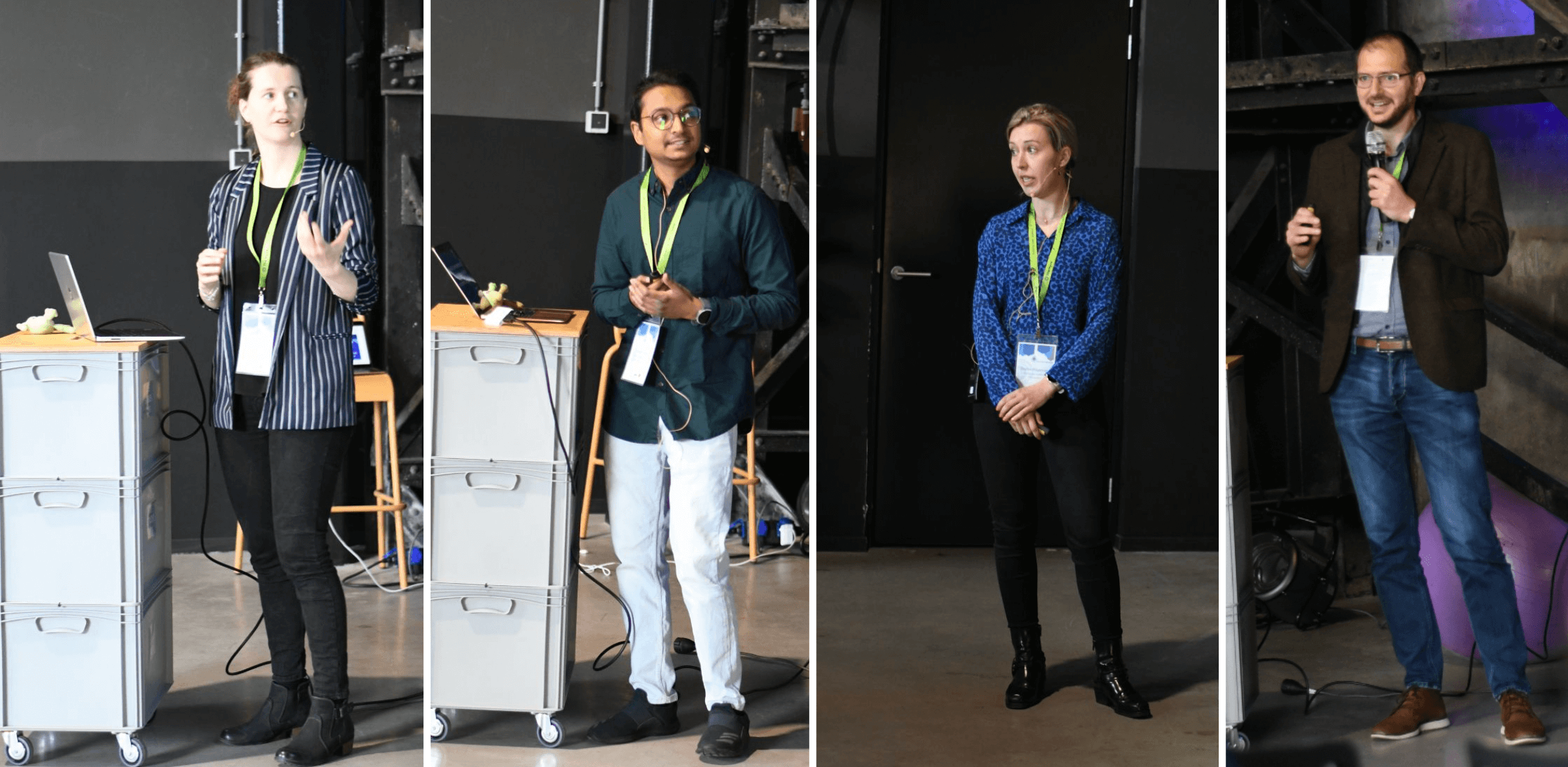The 2nd RADAR-base Symposium took place in Utrecht, The Netherlands, on April 20th, following the tremendous success of last year's meeting. The event brought together the RADAR-base community, industry partners, and collaborators, attracting over 50 in-person attendees. The day was filled with inspiring keynotes, interactive use case sessions, a poster competition, and ample networking opportunities.
What is RADAR-base?
RADAR-base is an open-source mHealth platform that revolutionizes remote data collection, monitoring, and analysis through the use of sensors, wearables, and mobile devices. If you're interested in learning more about RADAR-base and The Hyve’s services related to RADAR-base, click here. You can also catch up on the highlights from last year's conference here.
Symposium Highlights: A Journey of Innovation
The symposium kicked off with a warm welcome from Amos Folarin (KCL), setting the stage for an exciting day. Julia Kurps from The Hyve then took the spotlight, sharing the thrilling RADAR-base roadmap with the eager audience.

Keynote Insights: Shaping the Future
Professor Alejandro Melendez-Calderon from the University of Queensland delivered a captivating keynote speech, delving into how RADAR-base can revolutionize movement assessment after neuromuscular impairments. If you missed his thought-provoking talk, don't worry! You can watch the full recording here.

The symposium featured two engaging use case sessions, each brimming with fascinating talks that showcased the immense potential of RADAR-base.
Use Case Session 1: Exploring the Boundaries
Marijn Muurling (Amsterdam UMC): Unlocking the remote assessment of functional impairment in Alzheimer's disease through the RADAR-AD study. (Slides)
Yatharth Ranjan (KCL): Embracing the possibilities of remote monitoring and real-time interventions for managing lung disorders. (Slides)
Sophie Bögemann (Donder's Institute): Unveiling real-time analysis of ecological momentary assessments and ecological physiological assessments to trigger interventions during stress in real life.
Vasileios Exadaktylos (CHDR): Revolutionizing clinical trials with Trial@Home: Deploying RADAR-base for drug development. (Slides)

Following the first stimulating use case session, participants enjoyed a vibrant Poster Session and Networking Lunch, fostering connections and sparking conversations.
The afternoon continued with captivating keynote speeches:
Nickolas Cummins (KCL): Unleashing the power of smartphone voice recordings for monitoring depression. (Slides)
Joris Borgdorff and Peyman Mohtashami (The Hyve): Introducing the new features of Management Portal 2.0 (MP2.0), HealthKit integration and Clinician Dashboard. (Slides)

Use Case Session 2: Pushing the Boundaries Further
John Ainsworth (University of Manchester): Exploring the CONNECT study - utilizing digital biomarkers to predict relapse in schizophrenia. (Slides, Recording)
Alice Barnes (KCL): Embarking on the ART-CARMA journey: ADHD Remote Technology Study of Cardiometabolic Risk Factors and Medication Adherence. (Slides, Recording)
Nicole Ezendam (IKNL): Unveiling the use of Fitbits in longitudinal cohorts of cancer survivors in the Netherlands. (Slides, Recording)
Heet Sankesara (KCL): Introducing RADAR-Pipeline: a reusable feature generation pipeline and catalog for RADAR-base mobile health data. (Slides, Recording)
The use case sessions showcased a remarkable aspect of the RADAR-base platform: its ability to cover a broad range of disease areas. The platform's versatility was evident as it demonstrated its potential in various medical fields. Additionally, the sessions unveiled exciting technical developments made by our enthusiastic community contributors, offering a glimpse into the promising future of the platform.

As the symposium neared its end, two remarkable keynote speakers took the stage:
Callum Stewart (KCL): Longitudinal health monitoring takes center stage in the large crowd-sourced COVID Collab study. (Slides, Recording)
Abhishek Pratap (Biogen Digital Health): Embarking on a journey to improve health outcomes through digital technologies. (Recording)

To wrap up the event, the prestigious RADAR-base Symposium's Poster prize contest celebrated the brilliance of Jacob Andrews (University of Nottingham). Jacob presented his research on Central Nervous Disorders, captivating the audience with his poster titled "Prioritizing use cases for remote measurement and assessment using wearables and smartphone apps - A Delphi study." A special thanks to Garmin Health for sponsoring the poster prize, and congratulations to Jacob as Dr. Leon Brudy presented him with the well-deserved award.

Did you miss any of the presentations? Don't worry! You can access all the symposium's presentations here and watch the captivating videos right here.
The symposium concluded on a high note with a lively networking and drinks reception, buzzing with excitement and new connections. In summary, the RADAR-base Symposium exceeded all expectations, serving as a dynamic platform to explore the latest advancements in wearable devices, mobile health, and remote monitoring of diseases. We eagerly look forward to next year's gathering, ready to continue the discussion and witness the emergence of new groundbreaking developments. A heartfelt thank you to everyone who attended and contributed to the phenomenal success of this event!


